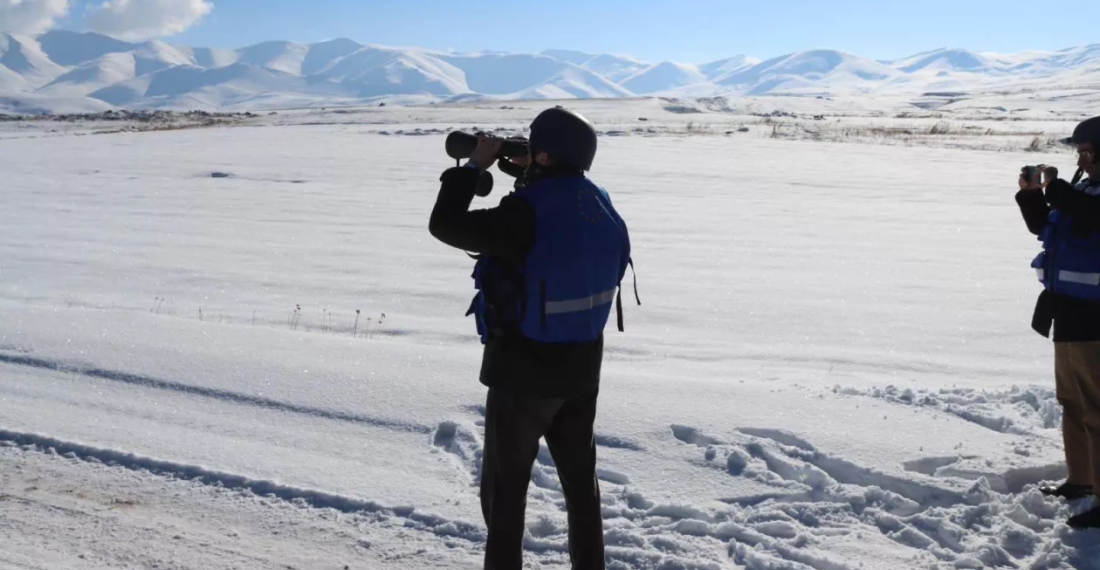Russia has strongly criticised the deployment of a new European Union civilian mission to Armenia, agreed upon by the EU and Armenia on Monday (23 January).
In a press statement released on Thursday (26 January), the Russian Foreign Ministry said:
"The appearance of representatives of the European Union in the border areas of Armenia, which has been reborn as an appendage of the United States and NATO and is pursuing a confrontational policy in the [Commonwealth of Independent Nations] space, can only bring geopolitical confrontation to the region and exacerbate existing disputes [...] The attempts of the European Union to gain a foothold in Armenia at any cost and to curb Russia's mediation efforts can damage Armenians' and Azerbaijanis' fundamental interests."
The statement continued to criticise Armenia for having turned to the EU for a second civilian monitoring mission, saying: "We note that in Yerevan, without bringing the work on the direction of the CSTO mission to its logical end, they preferred to make a choice in favor of the EU. If the Armenian allies remain interested in using the potential of the CSTO, its mission can be promptly deployed in Armenia."
Washington voices support for EU Mission in Armenia while Azerbaijan is wary
Meanwhile, Washington has given vocal support for the new EU civilian mission in Armenia, which has a mandate of two years. Speaking to reporters, State Department spokesperson Vedant Patel said: "We welcome efforts by partners, including the European Union, to build confidence in the region and to ensure an environment conducive to direct dialogue between Armenia and Azerbaijan."
Azerbaijan on the other hand remains wary of the new mission. In a statement released on Tuesday (24 January), the Azerbaijani MFA "took note" of the new civilian mission, adding that "such an engagement must not be exploited for derailing the normalization process between Azerbaijan and Armenia, including in the context of border delimitation process that should be carried out exclusively on a bilateral basis."
Mission objectives
According to the EU, the objectives of the mission are "to contribute to stability in the border areas of Armenia, building confidence on the ground, and ensuring an environment conducive to normalisation efforts between Armenia and Azerbaijan supported by the EU."
The statement from the EU adds that the mission "will conduct routine patrolling and report on the situation, which will strengthen the EU’s understanding of the situation on the ground. The Mission will also contribute to the mediation efforts in the framework of the process led by President of the European Council Charles Michel."
source: commonspace.eu with Russian MFA, Azerbaijani MFA, the European Union, and TASS
photo: A European Union monitor in Armenia in December (photo: EU Delegation to Armenia)



